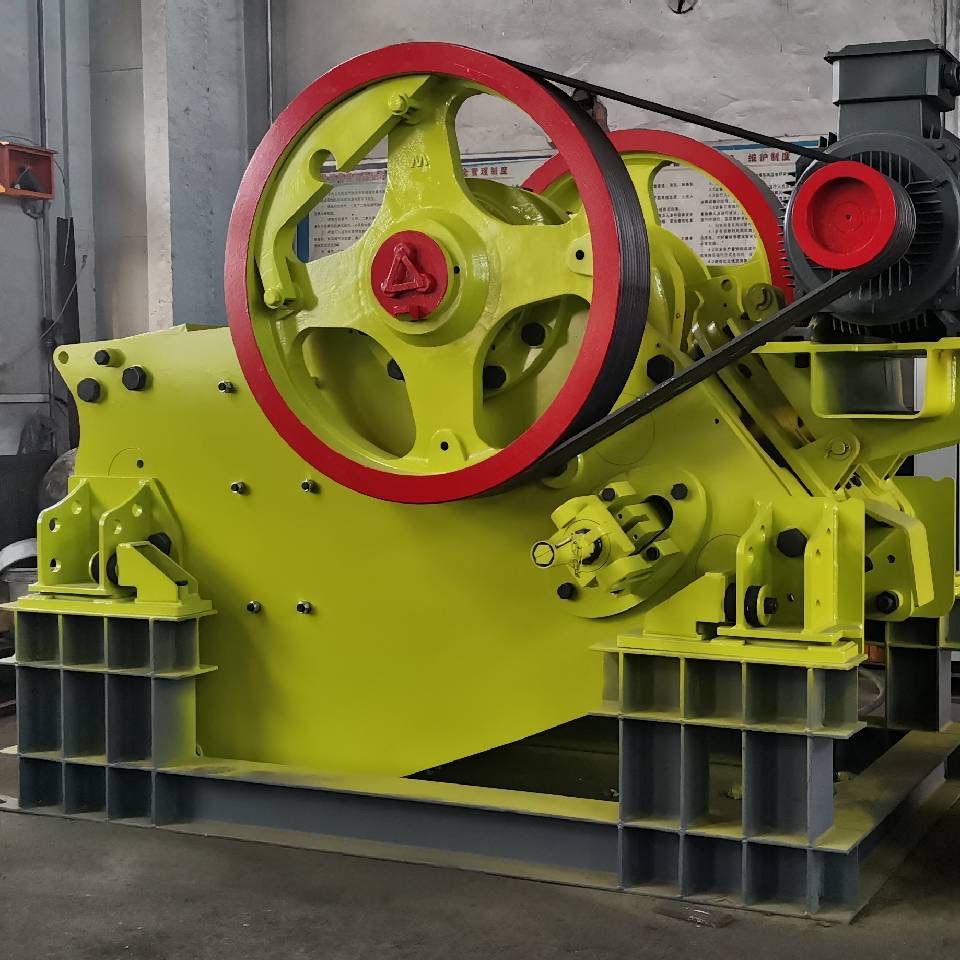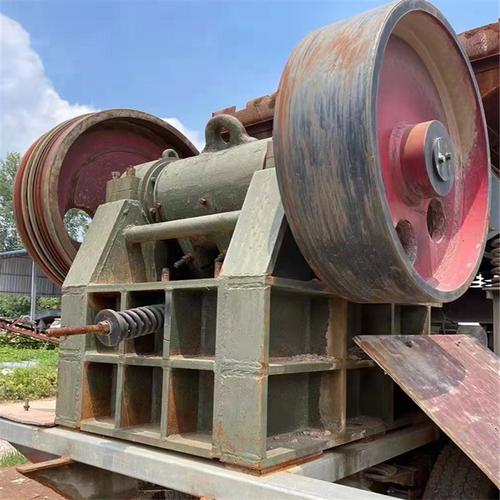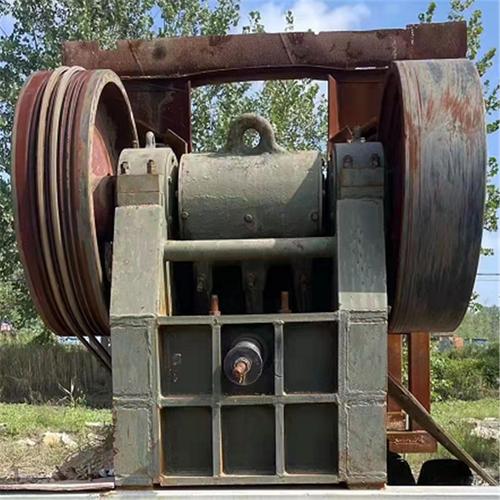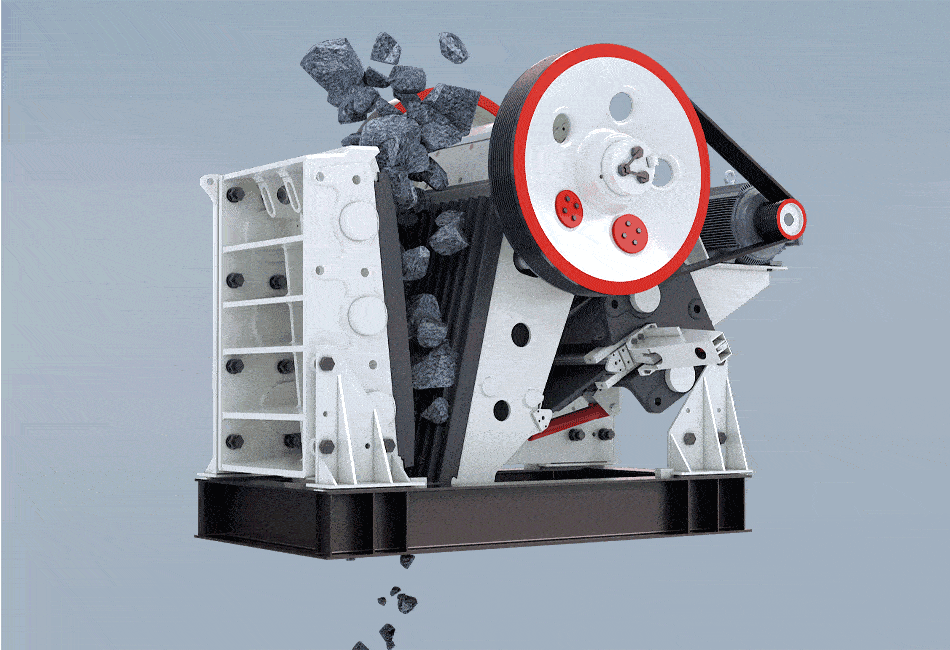Jaw Crusher Service Life Design and Maintenance Guide
The jaw crusher, widely used in industries such as mining, konstruksi, metallurgy, and chemicals, is essential for crushing various hard ores and large materials. The service life of the equipment directly affects production efficiency and operating costs. Therefore, extending the service life of the jaw crusher is key to improving the return on investment. Through rational design optimization, standard operation, and timely maintenance, the service life of the equipment can be greatly extended. This article provides a detailed guide on how to extend the jaw crusher’s service life and addresses common faults with solutions.

Key Measures to Extend the Service Life of Jaw Crushers
1. Optimize the Structural Design of the Jaw Crusher
- Design and Material Selection for Jaw Plates: The movable and fixed jaw plates are the core components of the jaw crusher. Choosing appropriate materials based on the type of crushed material can effectively extend the service life of these parts. For example, using high-wear-resistant alloy steel or ceramic alloys can significantly increase the durability of jaw plates, preventing premature wear and ensuring consistent performance.
- Symmetrical Jaw Plate Design: For medium and small-sized crushers, using an upper and lower symmetrical jaw plate design allows for the reversal and reuse of worn parts, providing an economical and efficient replacement option. For larger crushers, modular symmetrical designs are preferred to improve maintenance convenience.
- Structural Optimization and Dynamic Balance: Strengthen the connection between the movable and fixed jaws to maintain dynamic balance, reducing the structural fatigue caused by vibration. By using precise calculations and simulations, stress concentrations in components can be minimized, improving overall stability and extending the equipment’s service life.
2. Standardized Operation and Regular Maintenance
- Accurate Control of Feed Size: Improper feed size not only affects the crushing efficiency but also accelerates wear on the equipment. Ensuring that the material’s grain size meets the crusher’s requirements and avoiding overloading the system is crucial for extending its service life.
- Timely Lubrication and Cooling: A high-efficiency lubrication system is essential for prolonging the life of the jaw crusher. In high-temperature or long-duration operations, regularly check the quality and quantity of the lubrication oil to ensure all moving parts are adequately lubricated. Additionally, maintaining a functioning cooling system helps prevent deformation or excessive wear caused by overheating.
- Regular Replacement of Wear Parts: Regularly check and replace wear parts (such as thrust plates, liners, bearings, and belts) to avoid affecting the overall operation of the jaw crusher. Thrust plates and liners, in particular, play a crucial role in the machine’s stability and production capacity.
3. Enhancing the Durability with Materials and Wear Resistance
- High-Wear-Resistant Alloys: Using high-wear-resistant alloys, composite materials, or ceramic alloys for jaw plates and hammers significantly increases the service life of the crusher. For example, ceramic alloy materials have extremely high hardness and wear resistance, making them ideal for handling hard materials.
- Surface Treatment Technologies: Advanced surface treatment techniques, such as nitriding, heat treatment, and laser cladding, can increase the hardness and wear resistance of components. These techniques can be applied to critical parts of the jaw crusher to further enhance their durability.

Industry Applications: Jaw Crushers in Different Fields
Jaw crushers are used in a variety of industries and applications, ranging from traditional mining to modern construction waste processing.
- Mining Industry: In the mining industry, jaw crushers are primarily used for crushing various types of ores, such as limestone, granite, sandstone, etc. Due to the high hardness of these ores, choosing durable jaw plates and efficient power systems is critical.
- Construction Waste Processing: With the increasing emphasis on environmental protection policies, the recycling and reuse of construction waste has become a major focus. Jaw crushers efficiently process construction debris, breaking it into reusable aggregates or gravel, making them an essential tool in modern construction waste management.
- Chemical and Metallurgical Industries: In chemical and metallurgical industries, jaw crushers are often used to handle iron ore, bauxite, and other raw materials, playing a key role in mineral extraction processes.
Common Faults and Professional Repair Suggestions
1. Blockage of Discharge Opening
- Fault Cause: Discharge opening blockage is usually caused by oversized feed, too-hard material, or foreign objects entering the crushing chamber.
- Solution: Remove the blockage and check if the discharge opening size is suitable. Adjust the size of the discharge opening or replace worn components if necessary.
2. Loose or Misaligned Jaw Plates
- Fault Cause: Loose or misaligned jaw plates may occur due to bolt loosening or improper installation over time.
- Solution: Tighten all bolts and ensure that the jaw plates are in the correct position. Consider installing anti-loosening devices where necessary.
3. Bearing Damage
- Fault Cause: Bearing damage is often due to insufficient lubrication or excessive wear.
- Solution: Replace damaged bearings and check the lubrication system to ensure it is functioning properly. Make sure the oil level is sufficient and the oil quality meets requirements.

FAQ – Common Questions About Jaw Crusher Maintenance and Use
1. How often should a jaw crusher undergo comprehensive maintenance?
It is recommended to conduct a comprehensive check every six months, including checking the lubrication system, wear parts, movable and fixed jaw plates, and bearings to ensure the equipment operates in optimal condition.
2. How can jaw crusher overload be prevented?
Control the feed size and monitor the equipment’s operational status to avoid over-sized materials entering the crusher. Avoid overloading the system, and consider installing an intelligent monitoring system to detect load conditions in real-time.
3. How to resolve jaw crusher noise issues?
Noise issues can be caused by various factors, including worn parts, bearing damage, or overload. Regular inspection and timely replacement of worn parts, along with maintaining smooth operation, can significantly reduce noise.
4. How can power consumption of jaw crushers be reduced?
Optimize feed size to reduce unnecessary friction and load. Avoid overloading the equipment, and regularly check the motor and power system to ensure they are functioning efficiently.

Bin Ni
Sales Manager
Shandong Hengtai Heavy Industry Co., Ltd.
Tel: +86 18288664797
E-mail: [email protected]
Website: https://slminingmachinery.com/#
Alamat: Linyi, Shandong, China
